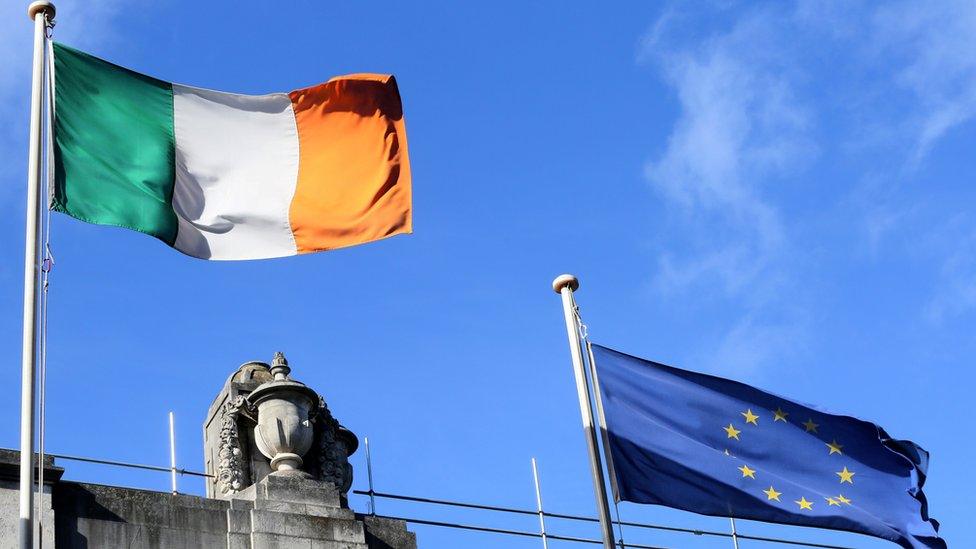Emma DeSouza: Home Office 'concession' over NI immigration rules
- Published
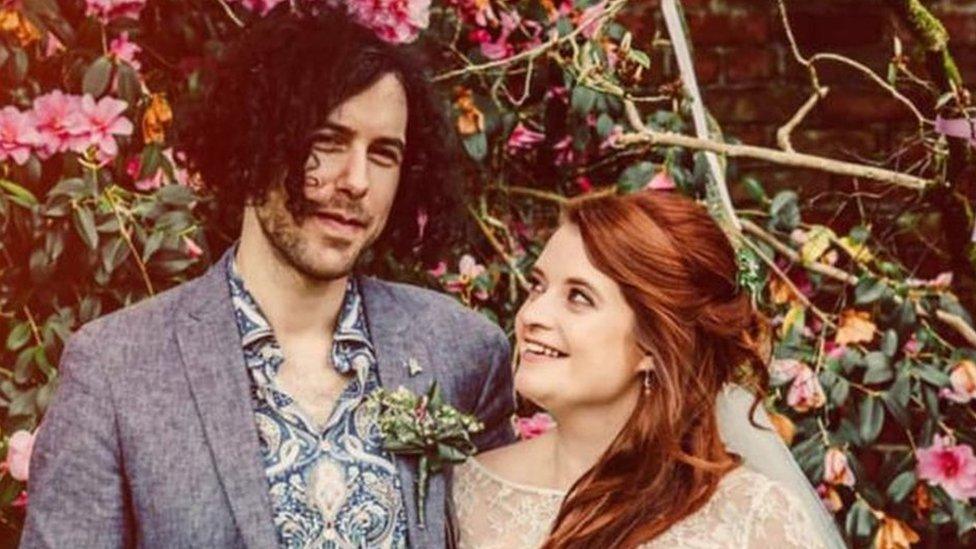
Emma De Souza with her husband Jake
A County Londonderry woman has welcomed a move by the Home Office to change how its immigration rules affect people in Northern Ireland.
Emma DeSouza took a legal case when an application for a residence card for her US-born husband was rejected.
In 2015 the Home Office said no, deeming her British, but Mrs DeSouza has never held a British passport.
The Good Friday Agreement allows people born in NI to identify as British, Irish or both.
On Thursday, the government said family members of British or dual British-Irish citizens from Northern Ireland would be able to apply for status, external through a post-Brexit residency process, known as the EU settlement scheme.
The government has maintained that people born in Northern Ireland remained British under the law, even if they identify as Irish.
In Mrs DeSouza's legal battle, the Home Office had requested that she either reapply as a British citizen or renounce her British citizenship and pay a fee to apply as an Irish citizen, for her husband's application to reside in Northern Ireland to be approved.
But she said she did not consider herself a British citizen and therefore had no need to renounce it, having always identified as Irish.
In January 2020, the UK government committed to "change the rules governing how the people of Northern Ireland bring their family members to the UK", as part of the power-sharing deal, external that restored the Stormont institutions - but only now have the laws changed.
'Positive impact'
Mrs DeSouza described the move as a significant "concession" from the Home Office.
"The changes to the immigration rules will have a positive impact on families across Northern Ireland and will provide a route to family reunification under the EU regulations, whether that person identifies as Irish or British or both," she said.
"We personally know a number of families that will benefit from this change and are filled with joy and relief that these families will not face calls to renounce British citizenship or face years in court like we have."

In 2019, an immigration tribunal ruled against Mrs De Souza and her husband, but they were appealing against the decision
The long-running case has drawn attention to wider issues of identity and citizenship in Northern Ireland, as Mrs De Souza used the Good Friday Agreement as the basis of her case against the government.
Anyone born in Northern Ireland has the right to identify as Irish or British or both, thanks to the Good Friday Agreement, external, signed in April 1998 by the British and Irish governments and Northern Ireland's political parties.
The agreement states that the British and Irish governments would: "Recognise the birthright of all the people of Northern Ireland to identify themselves and be accepted as Irish or British, or both, as they may so choose, and accordingly confirm that their right to hold both British and Irish citizenship is accepted by both governments and would not be affected by any future change in the status of Northern Ireland."
Mrs DeSouza had argued that the Home Office was ignoring the unique status provided to people in Northern Ireland through the agreement, and said she was glad the changes will now take effect.
"We have always contended that no-one should be forced to adopt or renounce a citizenship in order to access rights, to do so goes against both the letter and the spirit of the Good Friday Agreement," she added.
Allow X content?
This article contains content provided by X. We ask for your permission before anything is loaded, as they may be using cookies and other technologies. You may want to read X’s cookie policy, external and privacy policy, external before accepting. To view this content choose ‘accept and continue’.
Tánaiste (Irish deputy PM) Simon Coveney described the decision by the Home Office as a "good and important step".

Timeline of the case
Mrs DeSouza applied for a residence card for her US-born husband, Jake, in December 2015, making the application under her Irish passport.
However, the Home Office rejected the application as it deemed Mrs DeSouza was British, even though she says that she never held a British passport.
They requested she either reapply as a British citizen or renounce her British citizenship and pay a fee to apply as an Irish citizen.
But she challenged the decision, citing the Good Friday Agreement's terms that assert her ability to identify as Irish, British or both.
In 2017, a judge said Mrs DeSouza was an "Irish national only who has only ever been such" and the following February, the first tier tribunal ruled in favour of Mrs DeSouza.
Later in 2018, the Home Office lodged an appeal and the case was heard by a panel of judges in the Upper Tribunal court in September 2019.
After the tribunal upheld the case in the government's favour, Mrs DeSouza said she would take the case to the Court of Appeal in Northern Ireland.
That hearing is scheduled for 25 June.

Mrs De Souza expressed concerns, however, that the changes to the immigration laws are "time-limited", taking effect from 24 August until the scheme closes to applications next June.
"What these changes don't do is address the wider citizenship and identity issues that our case has uncovered," she added.
"The government has conceded on the principle by bringing forth these changes, we now need them to go the extra mile and fulfil their obligations to the people of Northern Ireland.
"Without addressing the wider gap in legislation these changes, whilst enormously welcomed, may well be no more than a sticking plaster."
Mrs De Souza said she and her husband would consult with their legal team about their ongoing court challenge, which is due to be reviewed in the Court of Appeal next month.
- Published16 October 2019
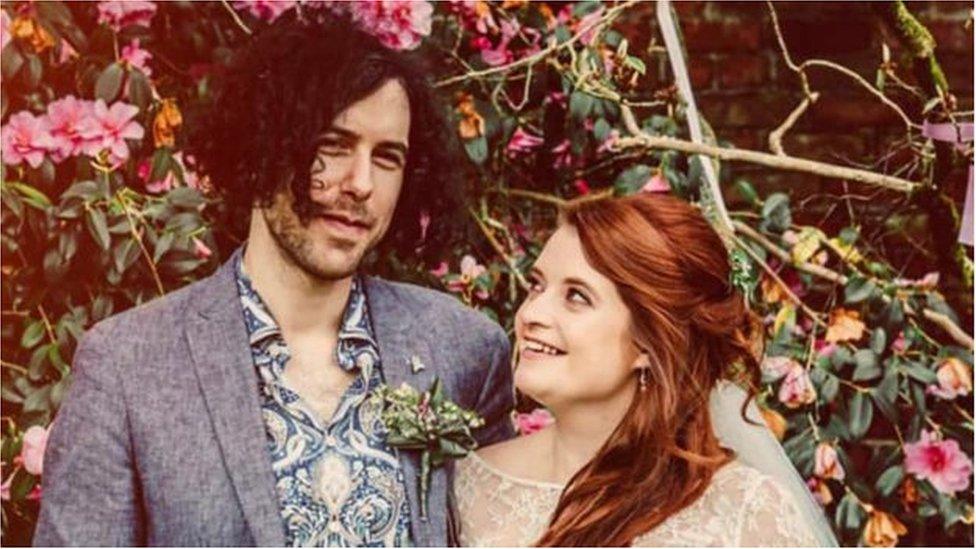
- Published10 September 2019

- Published8 May 2019
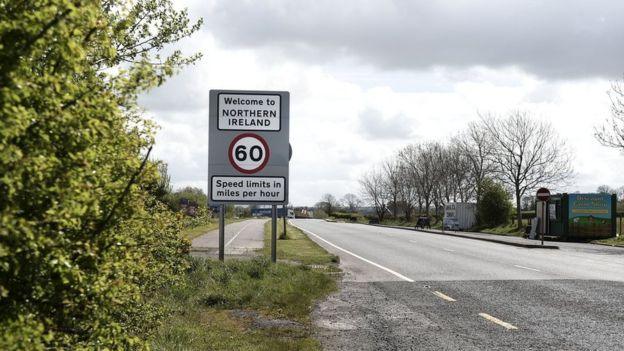
- Published23 February 2019
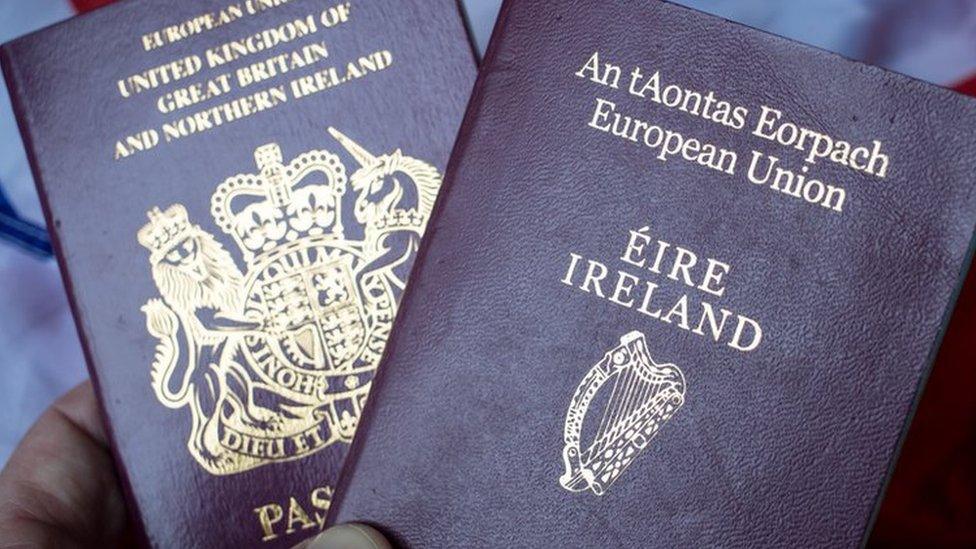
- Published16 December 2018
